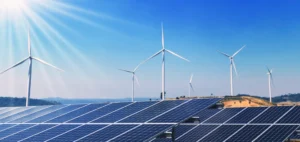The Asian Development Bank (ADB) has formalised a new financing commitment of more than $700 million (KGS63.18bn) for the Kyrgyz Republic for the period 2025–2027. The announcement was made during a visit to Bishkek by ADB President Masato Kanda, who met with Kyrgyz President Sadyr Japarov to reaffirm cooperation in strategic areas related to energy and regional development.
A financing framework focused on energy transformation
A memorandum of understanding was signed between ADB and the Ministry of Finance of the Kyrgyz Republic outlining a new financing framework for 2026 and 2027. In addition, three projects were confirmed under the existing 2025 agreement. These initiatives aim to improve energy efficiency in public buildings, enhance water resource management and develop affordable housing with stronger energy performance standards.
Discussions involved top national economic authorities, including Chairman of the Cabinet of Ministers Adylbek Kasymaliev, Minister of Finance Almaz Baketaev and Minister of Economy and Commerce Bakyt Sydykov. The focus was placed on modernising energy infrastructure and addressing climate risks in line with the country’s development priorities.
Pilot projects and urban mobility in Bishkek
Among the current initiatives, the urban transport electrification project in Bishkek has introduced 120 battery-electric buses powered by local hydropower. The project aims to reduce urban emissions while improving public transport quality. It also includes targeted training programmes, notably for women drivers, to foster professional inclusion in the sector.
During the 24th ministerial conference of the Central Asia Regional Economic Cooperation (CAREC) programme, Masato Kanda presented ADB’s regional investment plans, announcing more than $10 billion (KGS902.57bn) in funding by 2030 to strengthen energy and logistics integration across member countries.
Deepening regional energy cooperation
ADB’s financial support reaffirms Kyrgyzstan’s role in energy connectivity projects across Central Asia. By focusing on energy efficiency, climate resilience and the development of strategic infrastructure, the multilateral institution aims to consolidate its position as a key partner in the implementation of national energy policies.
These commitments reflect a broader regional approach to improve market interconnection, attract private investment and modernise energy transport and distribution systems. Through the CAREC programme, ADB aims to create a favourable environment for sustainable and competitive energy development in the long term.






















